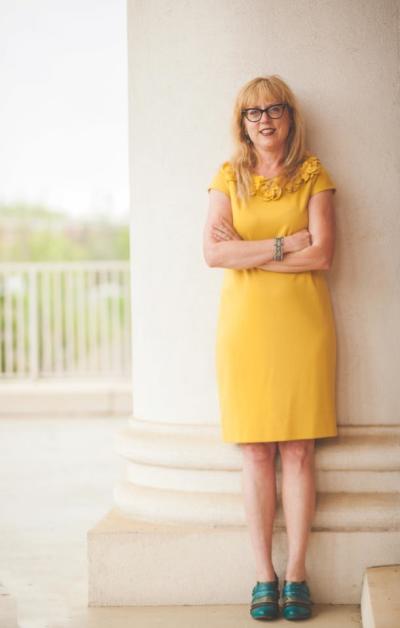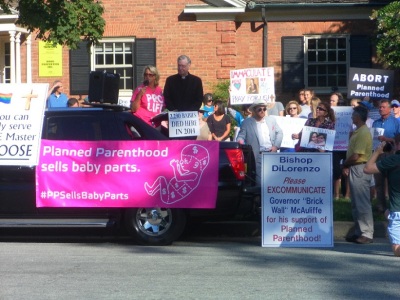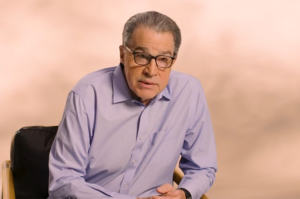Evangelical professors challenge Christian views on contemporary issues like gay marriage, abortion

A pair of evangelical professors have overseen the creation of a book that features diverse Christian perspectives on a host of contemporary issues, with the intention of challenging Christians to think about what they believe and why.
Liberty University English professor Karen Swallow Prior and theologian Joshua Chatraw served as editors and essay contributors to the book Cultural Engagement: A Crash Course in Contemporary Issues, which will be released on July 9.
The book covers nine contemporary issues: “sexuality,” “gender roles,” “human life and reproductive technology,” “immigration and race,” “creation and creature care,” “politics,” “work,” “arts,” and “war, weapons, and capital punishment.”
Each section has different perspectives from a range of professed Christian writers. For example, the “sexuality” chapter includes an essay from theological conservative Robert A. J. Gagnon and theological liberal Matthew Vines.
In the introduction, Prior and Chatraw wrote that with Cultural Engagement they wanted “to provide a panoramic view of the forest of Christian responses to the most pressing issues.”
“By placing these different pieces side-by-side, we are not implying they are all equally true or valid. Some are clearly at odds with each other. We each have our own opinions about these issues,” they wrote.

“The competing views in this book are important to be observed together for the simple reason that they are part of the panoramic landscape of the church's engagement with today's world. And learning to become good listeners (and readers!) is one of the first steps in engaging culture with grace and truth.”
The Christian Post interviewed Prior last week on issues including background on which the book was created, the need to listen to different viewpoints, and what essays in the book she disagreed with. The following Q&A includes excerpts from that interview.
CP: How do you believe your book is different from other books centered on Christian cultural engagement?
Prior: One thing I think sets this book apart is that it really is what the subtitle says, it is a "crash course" on a number of issues. It’s up to date in the sense that we have some of the current leading thinkers and writers on these nine issues that we addressed.
We don't just address the issues in this book. We actually set up a pretty sturdy framework in the introductory chapters and the discussion questions that help readers practice thinking through these issues biblically and critically.
A good third of the book is really about how we should engage the culture and how we think biblically through whatever the issue might be so that this book is much bigger than the particular topics covered here and even the particular views that are presented.
CP: It is noted in the book's Introduction that you wanted diverse Christian voices on contemporary issues in order to show "the panoramic landscape of the church's engagement with today's world." Much has been made about how increasingly Americans, left and right, seem to be more and more sheltered from different opinions. Do you believe that your book can help counter that problem, at least among American Christians?
That's actually one of the goals of the book. I think we're in an extremely polarized time in our culture, but also within the church.
Whether it is by our own choice or because of the algorithms that social media presents to us, we encounter oftentimes only the views that we already agree with or oftentimes the view that someone has posted in opposition in some sort of outrage. And we don't get much nuance and we don't get to see the range of views and to think through them.
All the writers in the book profess to be Christians. They aren't necessarily evangelical, they aren't necessarily orthodox in their beliefs, but they profess to be Christians. They claim to present a biblical view. And Christians are reading them, so we want to engage directly with those views, whether or not we agree with them.
CP: Were there perspectives that you decided should not be part of the book even though such perspectives could be considered part of that aforementioned panoramic landscape?
Prior: We have nine topics. And there were writers, there were some perspectives that we tried to include and the people that we asked couldn't participate.
A lot of it just comes down to practicality. There were a number of people we invited to participate who couldn't for one reason or another. We tried to present a balanced view. So if we got one perspective then we tried to get a different one.
CP: Of the contributor essays, what was one of the essays that you, as an individual, really disagreed with and why?
Prior: There were two for me that would be, for me personally, representing views that I strongly disagree with.
First one would be the gay-affirming essay by Matthew Vines. I and Josh both hold to traditional orthodox biblical views on human sexuality. We explain that in the introduction to the section.
But as professors, we know that even at a Christian university, like the one where I teach — this is a textbook designed for classroom use — I know that not only are my students already reading and engaging with these kinds of perspectives, many of them actually agree with it. And no one is really helping them think through in a critical biblical way what I consider to be errors.
So this book gives us the opportunity to present that point of view from someone in a fair way in his own words and that with the discussion questions and the framework that we provide, guide students through a critical approach to that point of view, along with a critical approach to the points of view that we actually agree with.
We have to hold to our beliefs because we actually believe them and believing them means thinking through them biblically and critically.
I also oppose abortion and artificial reproductive technology. And so we have an essay in there by a professing Christian who thinks that those are possibilities within a Christian worldview. I disagree.

CP: In one of the two essays you wrote in the book, titled "Pro-life in Word and Deed," you argued that inflammatory rhetoric can be counterproductive in advancing the pro-life cause. Would you say that inflammatory imagery, like how some pro-life protesters show photos of bloody fetuses and the like, is also counterproductive in a similar way?
Prior: I think that both in terms of the language and the images, that time and place are extremely important. I personally became pro-life because I saw a video of an abortion and so with the graphic image, until I saw that I did not understand what abortion entailed. And so, I believe there is a time and place for that. And I think wisdom and discernment are necessary to know when is a time to educate, when is a time to try to persuade with sweeter words and hospitality that might win a person over who is about to make a life and death decision.
In the essay that I wrote, in terms of using the word "murder," I was specifically talking in the context of outside an abortion clinic to the women going in and the workers going in. So in terms of what Christians talking about abortion and its moral significance, then yes, it is murder. It just doesn't help save lives, I don't think, to hurl that term at people going into the clinics.
CP: What do you hope readers take away from this book?
Prior: I hope that they take away a better understanding of how we are. First of all, we're all engaging culture all the time and in ways that can differ radically from one person to another. We give a history of different church traditions, approaches to engaging culture and sometimes we don't even know that we come within a tradition. We think that there is only one way. So just to have a broader understanding of how there are different models for engaging culture and to be more intentional and aware of the model that one might be using.
You can go out on the internet and you can find a Christian who advocates any position and says it’s a Christian view and can find a verse to back it up. But just reading that point of view or encountering that argument alone is not enough to equip most people to think through it and challenge it and understand why it is either right or wrong. And so with this book, we're hoping to offer a framework so that when we do go out and we read someone claiming to present the Christian view, we are better equipped to recognize whether that's true or not.



























